The Truth About Natural Weed Killer Exposed

You'll find an abundance of natural weed killer suggestions and DIY garden pest solutions on Hometalk, but which ones actually work? We caught up with renowned gardening expert and much loved Hometalk member Walter Reeves to reveal the truth behind the 9 most popular natural weed killers.
Gardening Expert Walter Reeves on 9 Popular Natural Weed Killers
1. Boiling water
One of the oldest pieces of gardening advice is to use boiling water as a natural weed killer. It's cheap, easy, doesn't involve chemicals, and works! Simply pour right onto the weeds!
Walter says: Boiling water is effective, and safe for the rest of your yard. Just be careful when carrying the hot water out into the yard!
Boling Water is a Natural Weed Killer | Photo via BrightNest
Hometalk tip: Add a pinch of salt to the pot to raise the boiling temp so your water death sentence will be extra effective.
2. Water Weeder
Just like boiling water, a high-powered blast of h20 is said to immediately end your weed's reign. The offending plant can simply be plucked from the ground just a few seconds after blasting. As an added plus, the water-filled hole will drain and settle, leaving a smooth-looking lawn just a few minutes after use.
Walter says: This is one of my all time favorite gardening tools. It's very effective, easy to use, and safe for the rest of your garden. There is no better tool for dandelions.
A Water Weeder | Photo via Lee Valley Tools
Hometalk tip: You can also use this tool for creating holes to plant seeds!
3. Mulch Cover
As mentioned in a recent Hometalk gardening guide post, some deter weeds by simply making it impossible for them to pop up in the first place. Simply cover all bare soil with mulch in your garden bed. Don't forget to leave a small ring around your plants for watering.
Walter says: Mulch cover is a great technique for preventing weeds in a garden. It's environmentally friendly, and will save your back. You can get a similar effect for your patio and walkways by using a ground cover underneath your stones or brick.
Mulch As A Natural Weed Killer | Photo via Clay B
4. Equal Parts Household Vinegar and Castile Soap
People often tout the benefits of zapping weeds naturally with everyday household items like vinegar and castile soap. The recipie combines equal parts vinegar and soap, and is applied with a spray bottle. Aim for the leaves and the very base of the plant to terminate the weed.
Walter says: Household vinegar is only 5% acetic acid, which is the main element that kills the weed. While the castile soap will remove the plant's protective oil coating, making it easier for the 5% vinegar to effect the plant, this method will only work on very young and weak weeds. Neither of these ingredients are good for the rest of your yard, and will kill other plants should they come into contact.
5. Pickling Vinegar, Dish Soap (a dash), and Salt (1/2 cup)
This is such an effective killer, it is only recommended for use in areas such your driveway, sidewalk, and patio. Many consider this concoction a heavy duty natural weed killer recipe. You'll likely need to buy pickling vinegar online as it's a bit stronger than your average household Heinz variety.
Walter says: Pickling vinegar is more acidic, but only slightly so, it's 10% acetic acid. The salt element of this concoction will also damage the plant, as salt kills all plants. The dish soap will also contribute to the plant's death by removing the wax coating on the plant's leaves. However, ultimately all of these things are terrible for your yard and the environmental and should be avoided. While vinegar does evaporate, the salt and the dish soap will remain on the ground, and can easily spread to the rest of the environment.
Pesky Walkway Weeds | Photo via In-Spiredlife
6. Pure Vinegar
Vinegar has many uses around the home, and many have found it to be handy in the garden as a natural weed killer as well. It destroys the weed's leaves and stalk, quickly ending your pest problem. Vinegar does not discriminate which leaves it sizzles; some even suggest using a paintbrush to apply the vinegar as directly as possible!
Walter says: Vinegar is an "ok" option for the yard since it evaporates quickly after use, but it simply isn't as effective as other methods. If a weed is already established, you would need a vinegar solution that is at least 20% acetic acid. However, at that point it becomes a dangerous chemical that could cause serious injury if it came into contact with you. It also kills every plant it touches, including the nice grass surrounding your weed, creating unsightly brown patches.
Young Weed Treated With Vinegar | Photo via Home Repair Tutor
7. Pure Salt
Salt is often heralded as an effective natural weed killer, and one that works particularly quickly. It restricts the moisture intake of the root system and dehydrates the leaves of the plant. A mixture of salt and water will aide the salt's ability to rapidly affect the root system. Pro-salters only recommended this technique for use on non-yard areas like a patio or walkway, as the salt will also kill any surrounding plants.
Walter says: Salt is a highly effective killer as it "burns" the roots, but it is too dangerous to the rest of the environment. Even if you do use the salt technique on a non-yard area, it can easily travel to other parts of your yard via rain, wind, or human or pet carriers. If it seeps into the soil, there really isn't any stopping its spread. I absolutely do not recommend this method.
8. Baking Soda
Another commonly suggested household weed killer is baking soda. The powder will neutralize the PH in the soil, and stop your weeds in their tracks. Believers of this technique say to add water to help the baking soda reach the roots to effectively and to only use on driveways, sidewalks, or patio areas, similar to the salt technique.
Walter says: Much like salt, baking soda can seep into the ground and wreak unforeseen havoc. I do not recommend.
9. Corn Gluten Meal After Treatment
Corn gluten has long been used as a pre-emergent herbicide, which means it will kill seedlings and prevent your weeds from returning after you've dealt with them the first time. As an added benefit, the nitrogen from this mixture is widely recognized as an all around great fertilizer for your yard!
Walter says: Corn gluten is indeed a safe and effective weed preventative, but be warned it works well on all seeds, so do not use near your garden or other plants. It does do a nice job of fertilizing your yard too. Note this will have no effect on already sprouted weeds.
Apply Corn Gluten So You'll Need To Weed Once | Photo via Simply Living Simply
Walter Reeves is one of the most respected garden gurus in the Southeast and the author or co-author of nine books on gardening. For 20 years, Reeves has hosted "The Lawn and Garden Show with Walter Reeves" Saturday mornings on Atlanta's WSB radio, which is one of the most listened-to radio shows in Atlanta. He also writes a weekly column for the Thursday Atlanta Journal-Constitution and distributes a bi-weekly e-mail garden newsletter. Walter has worked for the University of Georgia Cooperative Extension for thirty years. Read more of his suggested organic herbicides here.
Renowned gardening expert and much loved Hometalk member Walter Reeves
Have more gardening questions or dire weed problems? Ask the Hometalk Pros in the Hometalk Q&A section.
Enjoyed the project?
Suggested materials:
- Vinegar
- Castille Soap

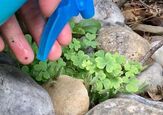






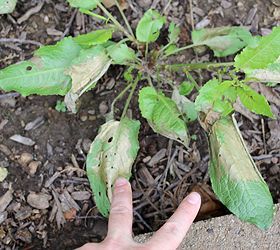


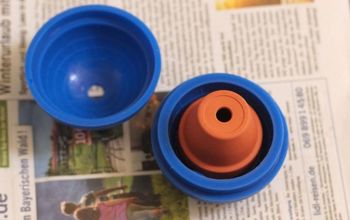
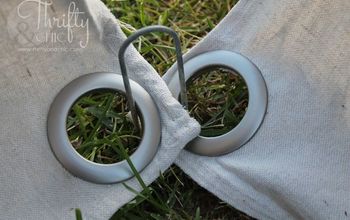



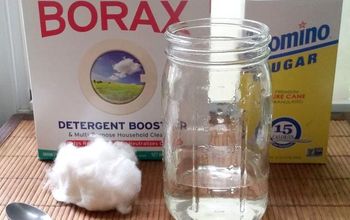
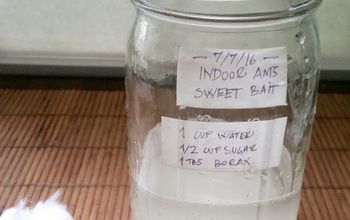
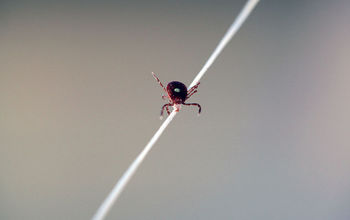
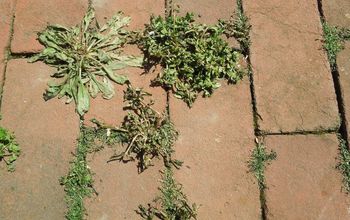
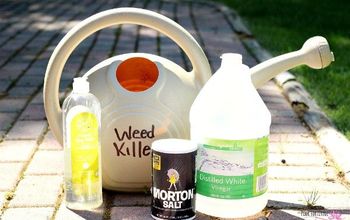
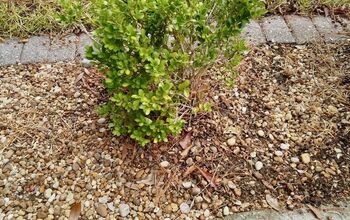
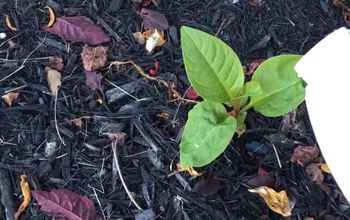
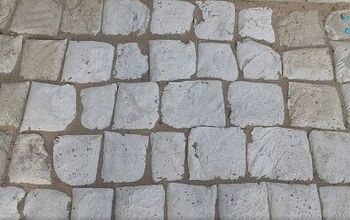
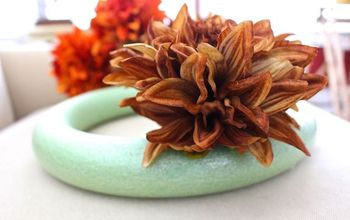
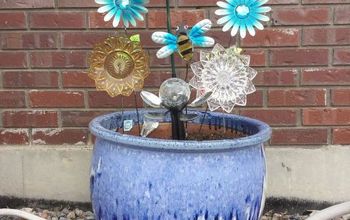

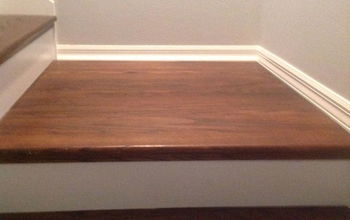

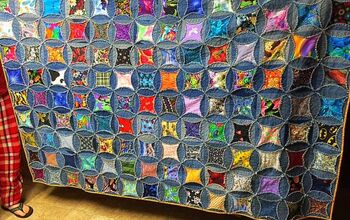

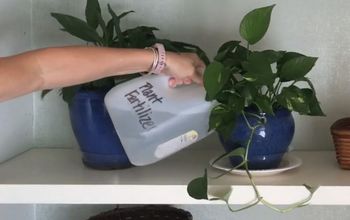

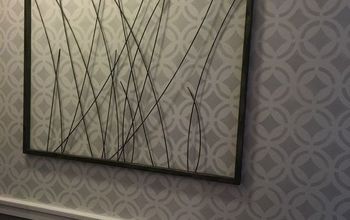
Frequently asked questions
Have a question about this project?
killing weeds? the one I am looking for is the thistle weed killer. Now these are in the garden and around tree trunks (such as birch trees) what is the best solution for this??
How do I make diy pest control for my hosta using listerine vinegar and Epsom salts and Ajax dish soap